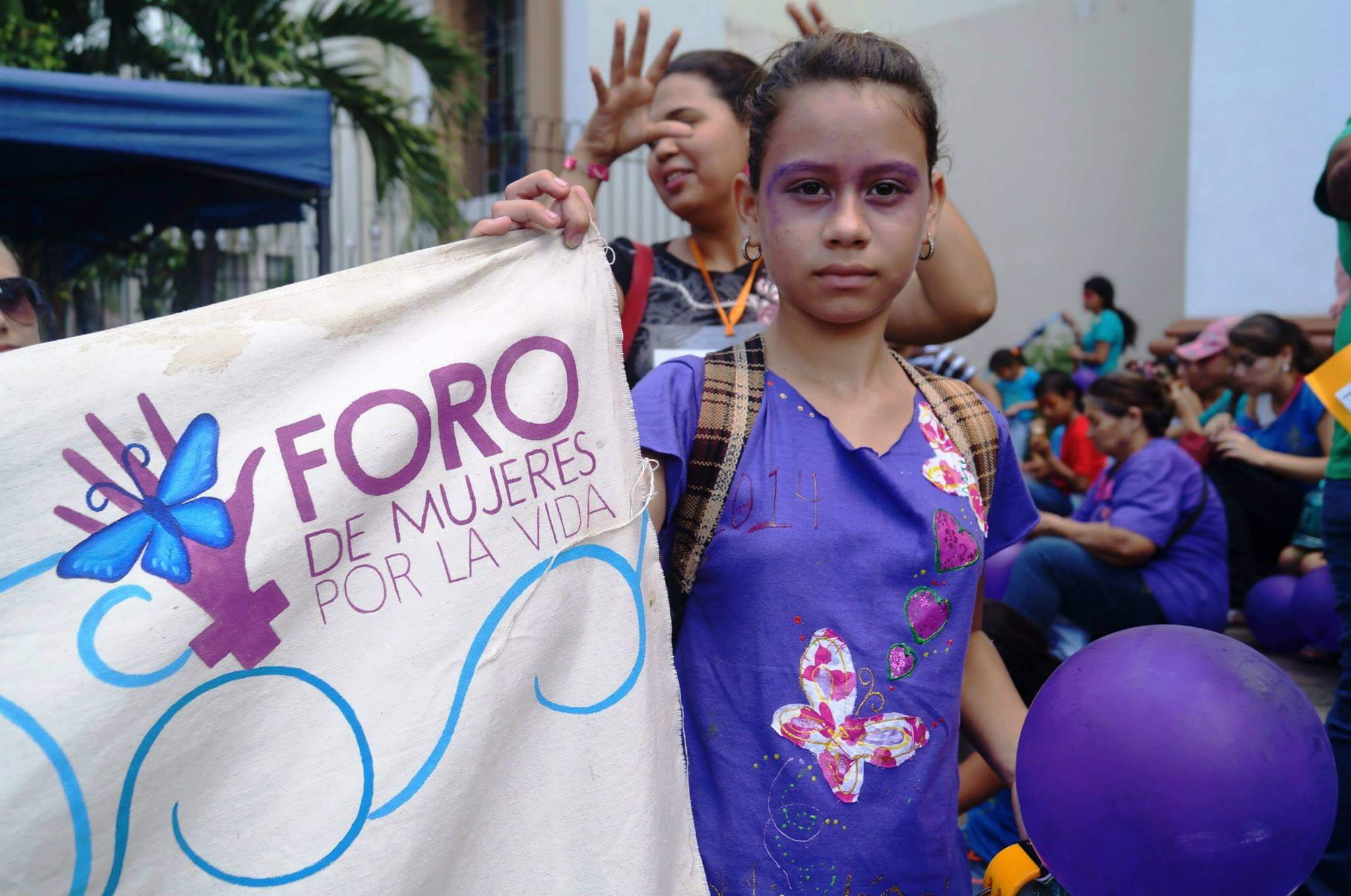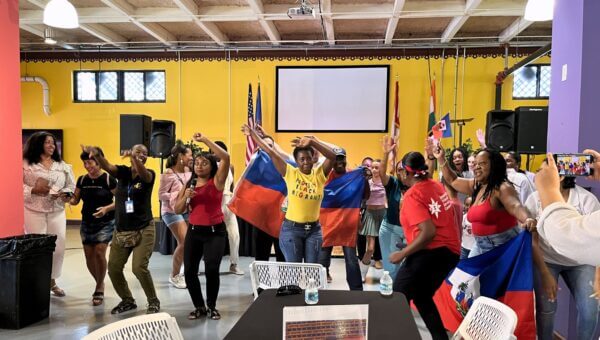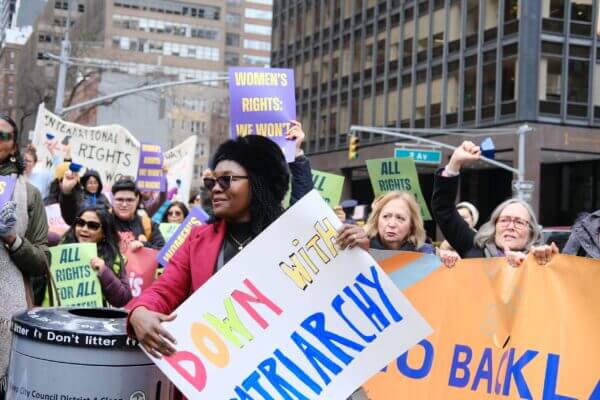Recently, UUSC partner el Foro de Mujeres por la Vida, hosted a lively discussion on the upcoming elections on November 28 and the impact of those elections on the democratic process in Honduras. UUSC provides a report back on the panel discussion in the first of this two-part series.
In anticipation of this month’s elections in Honduras, UUSC partner el Foro de Mujeres por la Vida (FDM) held a space for analysis and debate with several members of the organization in different parts of the country.
While each woman is watching and participating in the elections in different ways, from a variety of political and social positions, they gathered to offer visions of the electoral season from a shared feminist perspective. The panelists included:
- Carolina Sierra, director of FDM;
- Zoila Madrid, a social worker and professor;
- Sandra Bautista, a candidate for municipal council;
- Calixta Martine, a candidate for municipal council;
- Merary Ávila, a candidate for congress; and
- Nelly DelCid, a human rights activist.
“Faced with a government that tries to control the population, weaken human rights, and which has been identified as a narco-state, there is a lot of analysis from men, it’s important to have a vision from us women,” said Carolina Sierra.
Indeed, the foundations of Honduran politics and society cannot be fully understood without examining them through feminist, anti-imperialist lenses. While Honduras has historically had important moments of democratic progress in which women have been important participants, “democratic processes have always been unfinished, inconclusive,” remarked Zoila Madrid.
The effects of foreign intervention, led primarily by the United States, are significant.
“The logic of patriarchal power has been in its DNA since the installation of the banana republic, at which point Honduras was permanently left open to interference in its political processes.”
Ultimately, according to Madrid, it is a question of what having citizenship truly means.
“We gained the right to vote thanks to the suffragists, but being a citizen of the world means having ownership over our bodies, our decisions, and our autonomy.”
The 2009 coup d’etat interrupted the struggles of many women toward that fully realized citizenship since their demands had been directed at a state that ceased to exist.
“There has been an increase in violence reaching the highest rates ever seen,” said Madrid. This happens because of impunity; the institutions that are obligated to investigate have been weakened in a state oriented toward patriarchy and neoliberalism.”
The 2017 elections, in which current President Juan Orlando Hernández was reelected amid irregularities and highly credible accusations of widespread fraud, were also marked by intense social protests and state repression.
“That year, we witnessed an electoral process that was turned against us, our votes were not respected. With the help of the United States—which plays an important role in our democracy—it was recognized by the Organization of American States,” Madrid explained.
2021 appears to be slightly different. There is a woman candidate for President, and feminist women running for Congress.
“We have room to think that fraud will at least be more difficult this time around.”
Sandra Bautista, running for municipal councilor, explained that she was motivated to, “care for and cultivate spaces, which we women have had, but which have been abandoned. Women have supported other male candidates, and this time I said to myself— no, it can’t be that we’re doing all the work for the men to be the ones in power, and when they have the chance to do something good, create spaces for women, they don’t do it. They only think about the money.”
Calixta Martines, also a candidate for municipal councilor, said, “I made this decision more than anything because we have always been made invisible as women, and in the region where I live, as Garífuna women. It’s time for women to stand up and say, ‘We are here, we know that we can make a difference.’”
For her part, Merary Ávila, who is running for Congress, said that it was the, “indignation that has gripped us since the coup. We are always carrying the burden of the pain of seeing how we are murdered and raped, and there is no justice for us.”
While making the decision to run was a difficult one for each of them, they all agreed that this experience is not only one of learning for them and their movements, but of documenting the abuses of patriarchal, “machista” (sexist) power, and making it possible for the younger girls of today to see possibilities for themselves in the future.
“It’s good for us to be there, watching, documenting everything, and pointing the finger at those responsible,” said Ávila . “They attack us because they are afraid of us, and it means that we need a group of women to sustain us. It is not easy to be the target of political violence, and not have the support of other women. I get more strength from other women.”
There is, on the other hand, an important perspective of those who see democracy—particularly electoral democracy—as an illusion that simply does not work. Although many people vote every four years, this is because they feel a duty and obligation to do so, but it is not always clear what it means and where it is going.
Nelly DelCid explained that this is because, “it is designed from within patriarchal structures,” and a simulation of popular participation. In fact, she noted, “the only democracy that we get is electoral democracy— but once we deposit our ballots, we lose control. That’s not freedom, we don’t have the freedom to make choices about our own bodies.”
In Part 2 of the series, we will examine UUSC’s role in ensuring the integrity of the democratic process in Honduras.
Photo Credit: Foro de Mujeres por la Vida



